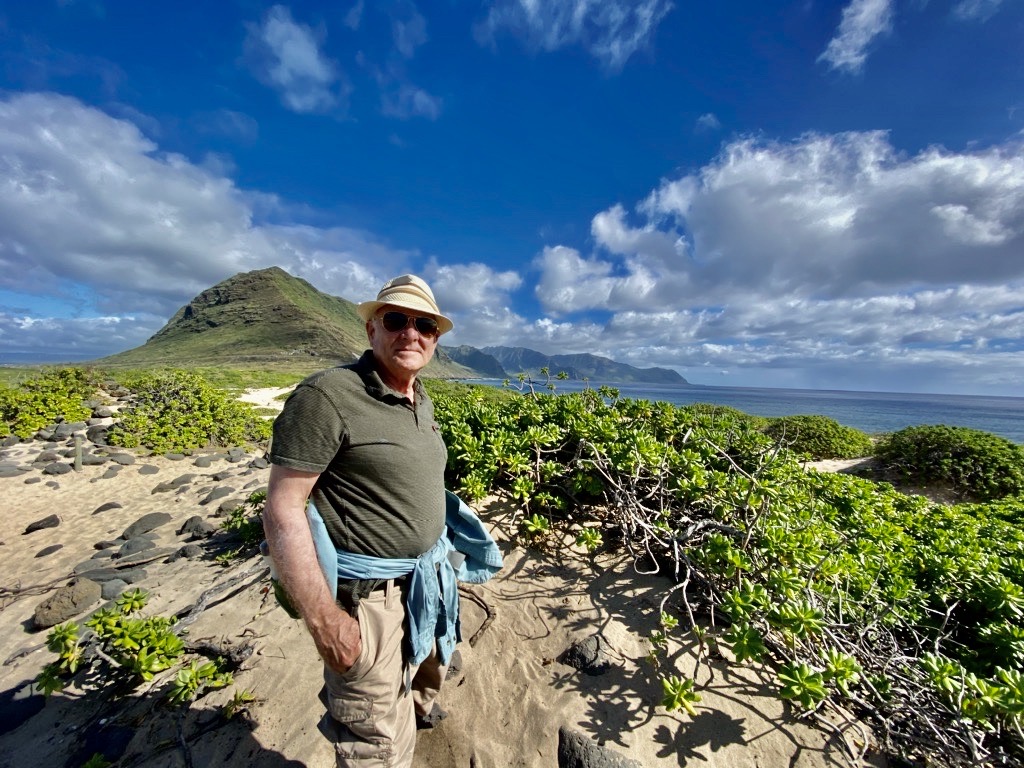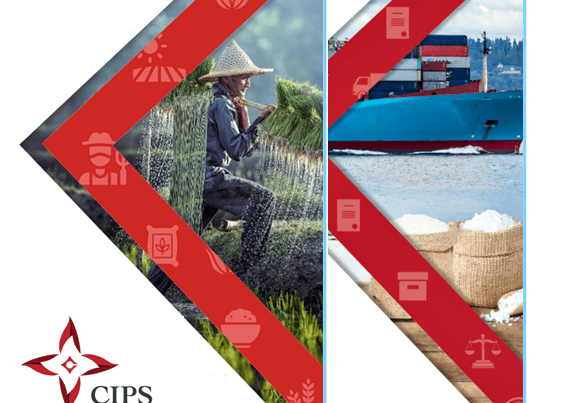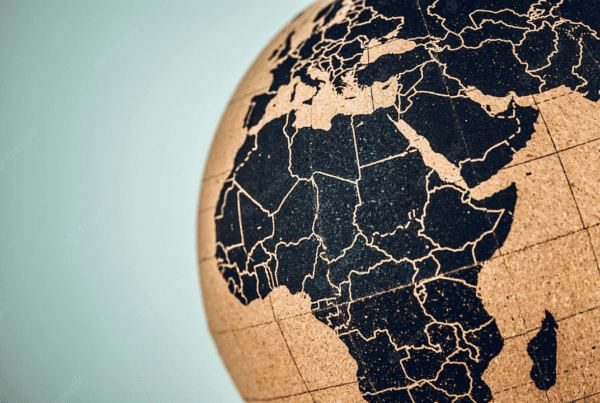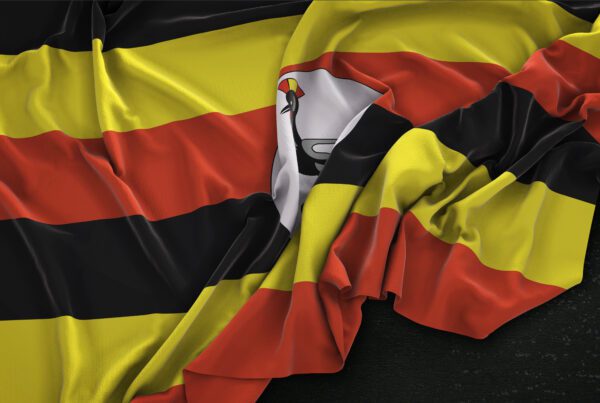By Ken Schoolland
Hawaii’s economy needs freedom, not a ‘navigator’
The all-caps headline for the May 1 print edition of the Honolulu Star-Advertiser screamed, “BACK TO WORK, FOR SOME.”[1]
To repeat: for some — but not others.
And that’s the problem. After more than a month of most of the economy being closed by the statewide coronavirus lockdown, our leaders are picking and choosing which people and businesses should be “allowed” to go back to work, based on dubious standards developed in secrecy.
One day fabric stores are “nonessential.” The next day they’re not.[2]
One day “nonessential” flower shops are told they can reopen in time for Mother’s Day. But, oops, that was a mistake, sorry, and they are ordered closed again. After a public outcry, they are permitted to open again.[3]
The “select businesses” authorized to reopen by the governor on April 29 were golf courses, real estate services, car dealerships, car washes, pet groomers and other mobile service providers, music tutors and cemeteries.
And, too, supermarkets, gas stations, banks, “critical trades” and more than 20 other so-called “essential” businesses have been exempt from the lockdown since Day One.[4]
All of these examples expose the capricious and potentially dangerous nature of the top-down regime under which we are currently living.
The point is …
The point here is two-fold:
First, if we’re really concerned about public health in Hawaii, we should free up the economy as soon as possible and let Hawaii work,[5] because at some point the shutdown will be a graver health risk to the public than the coronavirus itself.
As it stands, just six weeks into the lockdown, unemployment in Hawaii already is about 35%, and likely headed higher;[6] businesses are going bankrupt, some possibly never to reopen;[7] many people have exhausted their personal savings;[8] and thousands are waiting in long lines for free food.[9]
Evidence shows that as unemployment increases, so do suicides, alcohol- and drug-related deaths.[10] Domestic violence is on the rise.[11] The unemployed are at a higher risk of contracting stress-related conditions such as “stroke, hypertension, heart disease, arthritis, diabetes, and emotional and psychiatric problems.”[12] More people likely will die from diseases that went undetected or untreated during the lockdown[13] … and what else?
Do we need more proof that we are on a downward spiral that could have significant deadly results? No doubt it will be difficult to pitch Hawaii as “the safest and healthiest place in the world,” as state tourism officials are considering.[14]
Second, it is asking for trouble to rely on public officials to determine exactly which businesses and other social activities should be allowed — and when. Central planners can never have enough information to make decisions that are efficient and beneficial to everyone.
Nobel laureate economist Friedrich Hayek once referred to the utter failure of central planners to understand the complex and interconnected fabric of a market economy as their “fatal conceit.”[15] Official declarations as to which businesses are “essential” are purely subjective and highly suspect — especially since Hawaii’s open-meetings and open-records laws have been suspended.[16] Without transparency, it is impossible to know if those declarations involve logic, abuse or corruption.
There is also the danger that our central planners will get comfortable with their newly acquired power and not want to let go. Rarely do central planners relinquish all of the powers they amass during an emergency. And when their alleged remedies compound the original difficulties, this serves as an excuse for extending or increasing state interventions.[17]
Enter our ‘economic navigator’
In the case of Hawaii, Gov. David Ige in early April appointed local corporate executive Alan Oshima to be “Hawaii Economic and Community Recovery and Resiliency Navigator.”[18] His task was to “direct and implement a collaborative statewide plan for economic and community recovery and resiliency.”
On the mainland such an appointment would be called a “czar,” along the lines of an “energy czar,” a “drug czar” or a “food czar.” But in Hawaii, “navigator” seems more culturally sensitive, since presumably we are all in the same Polynesian canoe and have lost our way, floating aimlessly around the ocean without a navigator to tell us where to go.[19]
The term “czar” originated as a Slavic term for “Caesar” and is most associated in history with the czars of Russia.[20] They believed in the “divine right of kings” and answered only to God.[21]
The use of the term in modern times is meant to suggest that the appointed official, the “czar,” answers only to the appointing president or governor, without having to worry about outside scrutiny, competing bureaucracies or citizen interest groups.[22]
In Hawaii’s case, our “economic navigator” is supposed to be developing his economic plans in collaboration with “government, private sector, nonprofits and the community-at-large,” but presumably the final decisions are his — and the governor’s.[23] A bonus for the governor is that having such a sidekick can help him duck the blame when things go wrong.
But even granting the best of intentions, the chances are not good that a “navigator” will be able solve our economic problems. By tinkering with the recovery in arbitrary ways, according to a haphazard timeline, Oshima and his collaborators will likely extend the current massive uncertainty for business owners, employees, investors, creditors and customers, and disrupt the entire chain of supply.
A case in point is Lane Muraoka, president and owner of Hawaii’s four Big City Diner restaurants, who told the Honolulu Star-Advertiser that the stress and pain of not being able to open fully for business are getting worse with the uncertainty.
“It is not a good situation,” he said. “It’s very stressful for business owners. It is survival.”[24]
To be clear, our state government did not create the coronavirus pandemic itself, but federal policies did impede early testing and prevention measures that should have curtailed the spread of the disease.[25] Still, the Hawaii lockdown has been all local and is within the power of our governor to rescind.
But rather than just lift the lockdown, the governor and his “economic navigator” have been buckling down, seeking to micromanage every detail of the recovery, in the style of central planners throughout history. The massive funds from federal and state tax coffers being distributed to Hawaii residents are palliative crumbs intended to gain popular acceptance. But, as with all such disbursements, the lion’s share of privilege and largess will rain on powerful cronies and insiders.
‘Ethical firewall’ versus ‘iron triangle’
Suppose, for example, the current practice of virtual commerce and internet education affects transportation patterns on a grand scale. Would our central planners use this as an opportunity to stop funding Honolulu’s $9.2 billion rail project, since it would no longer be needed? Inconceivable, given the public-private partnership interests at stake.
The state’s “economic navigator,” a paid senior executive adviser to a state monopoly utility, assures us that “an ethical firewall has been set up to prevent conflicts of interest.”[26] But can we really trust such assertions when the governor has taken the most strident action in the nation to suspend government transparency?[27]
Anyone with an elementary knowledge of politics in this state knows that all participants in the shaping of government policy have a vested interest in advancing their own agendas under the guise of the public good. It is referred to as the “iron triangle”: special interests, politicians and government agencies, feeding each other, respectively, with campaign contributions, taxpayer funds and subsidies. This is also a perfect example of the “revolving door” of mutually vested interests — i.e., industry, politicians and bureaucrats — at the expense of the general public.
Lessons from postwar experiences
What would be a better way to let Hawaii’s economy recover from this crisis?
Since the pandemic has been compared to war, lessons of recovery could be taken from Germany and Japan, both reduced to rubble at the end of World War II. The “supreme allied commanders” who occupied these defeated nations were increasingly discouraged by the ineffectual policies of economic controls that had been recommended by the best of their economic advisers. In the case of Germany, “over 50% of the economy was located in the black market, economic growth was nonexistent, large segments of the workforce were unemployed or underemployed.”[28]
Then Ludwig Ehrhard was appointed minister of economic affairs and, against the wishes of the allied commanders and his own advisers, he abruptly ended the postwar production and price controls in the summer of 1948. Consumer goods reappeared virtually overnight on the open market and production began to soar.
Joseph Dodge and The Shoup Mission[29] then carried this message to Japan, where similar policies were adopted. Wartime controls were removed and taxes cut drastically and continually over the next two decades.[30] Thus Germany and Japan became the economic miracles of the postwar era, propelled by economic freedom to become, respectively, the world’s second and third most prosperous market economies.
Which is to say, the million-plus people of Hawaii don’t need government “navigators” to manage the state’s economic recovery. Instead, the spirit of entrepreneurship should be unleashed, and quickly.

Beyond the lockdown
Beyond lifting the lockdown, Hawaii policymakers should cut taxes and eliminate Hawaii’s intricate web of unreasonable, crippling regulations that magnify the cost of housing, food, healthcare and all other goods and services “essential” to our lives.[31]
For the healthcare industry particularly, they could retain Gov. Ige’s edicts that sanctioned telemedicine[32] and allowed doctors and other healthcare providers from other states to practice in Hawaii;[33] eliminate the state’s “certificate of need” laws for new medical facilities,[34] [35] and exempt healthcare providers from the state’s general excise tax.
They could also lobby the federal government to reform the protectionist maritime law known as the Jones Act, which adds to Hawaii’s high cost of living, and which, at the moment, is politically vulnerable.[36]
Such policies will help Hawaii recover quickly from the crisis, and ideally even help it obtain a more fundamentally sound and prosperous economy than before.
But how can we be sure that nobody will contract the coronavirus and die if the statewide lockdown is lifted? We can’t. The world is always filled with trade-offs and risk. Nevertheless, our nation is resilient and has survived worse, even fairly recently, because of our vitality and freedoms.
Nathaniel L. Moir, a history professor with the Harvard University’s Kennedy School of Government, wrote recently in The National Interest, that i 1968, “the H3N2 pandemic killed more individuals in the U.S. than the combined total number of American fatalities during both the Vietnam and Korean Wars.”[37]
And what was America’s reaction?
“Nothing closed,” wrote Jeffrey Tucker, editorial director of the American Institute for Economic Research, in a recent commentary.
“Schools stayed open. All businesses did, too. You could go to the movies. You could go to bars and restaurants. … Stock markets didn’t crash. Congress passed no legislation. The Federal Reserve did nothing. Not a single governor acted to enforce social distancing, curve flattening (even though hundreds of thousands of people were hospitalized), or banning of crowds.
“No mothers were arrested for taking their kids to other homes. No surfers were arrested. No daycares were shut, even though there were more infant deaths with this virus than the one we are experiencing now. There were no suicides, no unemployment, no drug overdoses. Media covered the pandemic but it never became a big issue. …
“The only actions governments took was to collect data, watch and wait, encourage testing and vaccines, and so on. The medical community took the primary responsibility for disease mitigation, as one might expect. It was widely assumed that diseases require medical not political responses.”[38]
For context, Tucker noted that the famous Woodstock concert of August 1969, attended by about 400,000 people, “actually occurred during a deadly American flu pandemic that only peaked globally six months later,” and ironically is more likely to be remembered than the pandemic.
Another irony is that in those days, the Vietnam War captured the attention of the country, not the pandemic, while today the pandemic is foremost and our multiple wars get scant notice.
In the case of COVID-19, there is evidence that our federal government actually hindered a quick and more nuanced approach to dealing with the deadly disease. According to syndicated columnist Jacob Sullum, the failure by the Food and Drug Administration and Centers for Disease Control and Prevention to implement early and widespread coronavirus testing “left politicians scrambling to avoid a hospital crisis by imposing broad business closure and stay-at-home orders.
“It foreclosed,” he said, “the possibility of a more proactive and targeted approach, focused on identifying carriers, tracing their contacts, and protecting the public through isolation and quarantines.”[39]
Similarly with our economy, we need government officials, both state and federal, to take a more minimalist approach in deciding how our economy should recover.
We need not throw caution to the wind and pretend the coronavirus is not a health threat. But as we try to rehabilitate our sick economy, we need to remember that a free society is not a canoe taking us all in the same direction, governed by a captain and his or her navigator.
The proper governing role in a free society is to ensure that we respect each other’s rights, abide by our agreements and leave each of us free to pursue whatever paths we choose.
______________
Ken Schoolland is Liberty International Vice President for International Relations, associate professor of economics at Hawaii Pacific University and author of the popular economics fable “The Adventures of Jonathan Gullible,” published in more than 50 languages worldwide.
[1] Dan Nakaso, “BACK TO WORK, FOR SOME: Select businesses are allowed to reopen but must still follow social-distancing guidelines,” Honolulu Star-Advertiser, May 1, 2020, www.staradvertiser.com/2020/05/01/hawaii-news/some-businesses-cautiously-reopen-as-restrictions-lift
[2] Nina Wu, “Fabric stores to open as essential businesses,” Honolulu Star-Advertiser, April 14, 2020, www.staradvertiser.com/2020/04/14/hawaii-news/fabric-stores-to-open-as-essential-businesses.
[3] Timothy Hurley, “FLORISTS BACK IN BUSINESS: Gov. Ige reverses his decision and allows flower shops to make deliveries for Mother’s Day,” Honolulu Star-Advertiser, April 28, 2020, www.staradvertiser.com/2020/04/28/hawaii-news/gov-ige-reverses-his-decision-and-allows-flower-shops-to-make-deliveries-for-mothers-day.
[4] “Six supplementary proclamation amending and restating prior proclamations related to the COVID-19 emergency,” Office of the Governor, State of Hawaii, pp. 5-10, https://governor.hawaii.gov/wp-content/uploads/2020/04/2004144-ATG_Sixth-Supplementary-Proclamation-for-COVID-19-distribution-signed.pdf.
[5] “Let Hawaii Work” petition, April 30, 2020, www.lethawaiiwork.com.
[6] Kawano, Lynn, “State paid $204 million in benefits in April as unemployment hit 35%,” Hawaii News Now, May 1, 2020, www.hawaiinewsnow.com/2020/05/01/state-paid-m-benefits-april-unemployment-hit.
[7] Annalisa Burgos, “PPP loan can’t save iconic Irish pubs during state shutdown,” KITV4 Island News, May 4, 2020, www.kitv.com/story/42088560/ppp-loan-cant-save-iconic-irish-pubs-during-state-shutdown; and “J.Crew files for Chapter 11 as COVID-19 pandemic chokes retail,” The Associated Press, May 4, 2020, www.staradvertiser.com/2020/05/04/breaking-news/j-crew-files-for-chapter-11-as-covid-19-pandemic-chokes-retail.
[8] John W. Schoen, “Americans expect to burn through their savings quickly, survey finds,”CNBC, April 2, 2020, www.cnbc.com/2020/04/02/americans-expect-to-burn-through-their-savings-amid-pandemic.html.
[9] Nina Wu, Honolulu Star-Advertiser, May 1, 2020, www.staradvertiser.com/2020/05/01/hawaii-news/thousands-wait-in-line-for-food-distribution-at-waipio-soccer-complex.
[10] Ryan McMaken, “Unemployment Kills: The Longer Lockdowns Last, the Worse It Will Get,” Mises Wire, Mises Institute, April 30, 2020, https://mises.org/wire/unemployment-kills-longer-lockdowns-last-worse-it-will-get.
[11] “Impact of the COVID-19 pandemic on domestic violence,” Wikipedia, last updated May 4, 2020, https://en.wikipedia.org/wiki/Impact_of_the_COVID-19_pandemic_on_domestic_violence#United_States.
[12] Amy Gutman, “Failing Economy, Failing Health,” Harvard Public Health, Harvard T.H. Chan School of Public Health, Spring 2014, https://www.hsph.harvard.edu/magazine/magazine_article/failing-economy-failing-health.
[13] Sandeep Jauhar, “The Hidden Toll of Untreated Illnesses,” The Wall Street Journal, April 17, 2020, https://www.wsj.com/articles/the-hidden-toll-of-untreated-illnesses-11587128385.
[14] Kevin Dayton, “Plans in the works to market Hawaii as the ‘safest place in the world,’” Honolulu Star-Advertiser, May 1, 2020, www.staradvertiser.com/2020/05/01/hawaii-news/plans-in-the-works-to-market-hawaii-as-the-safest-place-in-the-world.
[15] Friedrich Hayek, “The Fatal Conceit: The Errors of Socialism,” University of Chicago Press, 1988, https://press.uchicago.edu/ucp/books/book/chicago/F/bo3643985.html. See also “The Fatal Conceit,” Wikipedia, last edited April 16 ,2020, https://en.wikipedia.org/wiki/The_Fatal_Conceit.
[16] Nick Grube, “Suspension of Hawaii’s Open Government Laws More Extreme Than Other States,” Honolulu Civil Beat, March 30, 2020, www.civilbeat.org/2020/03/suspension-of-hawaiis-open-government-laws-more-extreme-than-other-states.
[17] Robert Higgs and Donald J. Boudreaux, “Past Crises Have Ratched Up Leviathan. The COVID-19 Crisis Will Too,” Reason, May 1, 2020, https://reason.com/2020/05/01/past-crises-have-ratcheted-up-leviathan-the-covid-19-pandemic-will-too.
[18] “Governor Ige appoints Alan M. Oshima to lead Hawaii’s economic and community recovery, resiliency efforts,” Office of the Governor, State of Hawaii, April 8, 2020, https://governor.hawaii.gov/newsroom/latest-news/office-of-the-governor-governor-ige-appoints-alan-m-oshima-to-lead-hawaiis-economic-and-community-recovery-resiliency-efforts. Also, David Y. Ige, “Establishing a Hawai‘i Economic and Community Recovery and Resiliency Navigator,” Office of the Governor, State of Hawaii, April 8, 2020, https://governor.hawaii.gov/wp-content/uploads/2020/04/20-04-08-Establishing-a-Hawaii-Economic-and-Community-Recovery-Resiliency-Navigator.pdf.
[19] In a May 4 news story, Honolulu Civil Beat reporter Stewart Yerton referred to Alan Oshima as “recovery czar.” See Stewart Yerton, “Reshaping Hawaii’s Economy For A Post-Pandemic World,” Honolulu Civil Beat, May 4, 2020, www.civilbeat.org/2020/05/reshaping-hawaiis-economy-for-a-post-pandemic-world.
[20] “Tsar,” WIkipedia, https://en.wikipedia.org/wiki/Tsar.
[21] “Divine right of kings,” Wikipedia, https://en.wikipedia.org/wiki/Divine_right_of_kings; and “Russian Empire,” Wikiwand, www.wikiwand.com/simple/Russian_Empire.
[22] “Czar (political term,” WIkipedia, org/wiki/Tsar. https://en.wikipedia.org/wiki/Czar_(political_term).
[23] “Governor Ige appoints Alan M. Oshima to lead Hawaii’s economic and community recovery, resiliency efforts,” Office of the Governor, State of Hawaii, April 8, 2020.
[24] Andrew Gomes, “As financial pain grows, Hawaii’s ‘nonessential’ retailers await OK to reopen,”
Honolulu Star-Advertiser, May 4, 2020, www.staradvertiser.com/2020/05/04/hawaii-news/as-financial-pain-grows-hawaiis-nonessential-retailers-await-ok-to-reopen.
[25] J.D. Tuccille, “Dump the FDA for a Healthier America,” Reason, April 3, 2020, https://reason.com/2020/04/03/dump-the-fda-for-a-healthier-america.
[26] Stewart Yerton, “Hawaii’s New ‘Economic Navigator’ Has A Murky Journey Ahead,” Honolulu Civil Beat, April 17, 2020, www.civilbeat.org/2020/04/hawaiis-new-economic-navigator-has-a-murky-journey-ahead.
[27] Nick Grubbe, “Suspension of Hawaii’s Open Government Laws More Extreme Than Other States,” Honolulu Civil Beat, March 30, 2020, www.civilbeat.org/2020/03/suspension-of-hawaiis-open-government-laws-more-extreme-than-other-states.
[28] Samuel Gregg, “The forgotten story of the German economic ‘miracle’,” Acton Institute, July 6, 2016, www.acton.org/pub/commentary/2016/07/06/forgotten-story-german-economic-miracle.
[29] “Joseph Dodge,” Wikipedia, https://en.wikipedia.org/wiki/Joseph_Dodge, and “Carl Shoup,” Wikipedia, https://en.wikipedia.org/wiki/Carl_Shoup.
[30] Alan Reynolds, “Toward Meaningful Tax Reform in Japan,” Cato Institute, April 6, 1998, www.cato.org/publications/speeches/toward-meaningful-tax-reform-japan and Jude Wanniski, “The Way the World Works: How Economies Fail and Succeed,” Basic Books Publisher, 1978, pp. 194-195, www.amazon.com/Books-Free-Shipping-Amazon/s?k=The+Way+the+World+Works%3A+How+Economies+Fail–and+Succeed&rh=n%3A283155%2Cp_76%3A1250218011.
[31] Joe Kent, “18 ways to help Hawaii get back on its feet,” Grassroot Institute of Hawaii, April 19, 2020, www.grassrootinstitute.org/2020/04/18-ways-to-get-hawaii-back-on-its-feet.
[32] “Six supplementary proclamation amending and restating prior proclamations related to the COVID-19 emergency,” Office of the Governor, State of Hawaii, pp. 23-24, 27 and 31.
[33] Ibid, pp. 21-23, and 27.
[34] “Certificate of Need,” State Health Planning & Development Agency, Hawaii Department of Health, 2020, https://health.hawaii.gov/shpda/certificate-of-need.
[35] Denis Mannschatz, “Hawaii doesn’t need ‘certificate of need’ laws,” Grassroot Institute of Hawaii, Nov. 7, 2017, www.grassrootinstitute.org/author/denismannschatz.
[36] David McCullough and Nicholas Hillman, “Drowning in Oil, Regulatory Measures to Keep Prices Afloat, OE Digital E-News, May 1, 2020, www.oedigital.com/news/478110-opinion-drowning-in-oil-regulatory-measures-to-keep-prices-afloat. “If the Jones Act was ever to waived for economic and logistical reasons, recent events would indicate now is the time.”
[37] Nathaniel Moir, “Move Move Over, Coronavirus: We Fought A Pandemic During the Vietnam War, The National Interest,” April 24,2020, https://nationalinterest.org/blog/buzz/move-over-coronavirus-we-fought-pandemic-during-vietnam-war-148171.
[38] Jeffrey Tucker, “Woodstock Occurred in the Middle of a Pandemic,” American Institute for Economic Research, May 1, 2020, www.aier.org/article/woodstock-occurred-in-the-middle-of-a-pandemic.
[39] Jacob Sullum, “How the CDC and FDA wrecked the economy, Reason, April 8, 2020, https://reason.com/2020/04/08/how-the-cdc-and-the-fda-wrecked-the-economy.




